Agritourism involves much more than a farmer’s wife renting out a farm cottage for an extra income.
Jacqui Taylor started Rural Tourism Africa in 2016 to support sustainable rural development in South Africa and elsewhere in Africa.
Having grown up on a farm with apple and pear orchards, cattle, and pigs, she experienced first-hand that city people love visiting a farm. “Town and city-dwelling friends of my parents often visited the farm, and my schoolfriends never missed an opportunity to spend a weekend on the farm.”
When she started researching agritourism, she found that the concept originated in Italy, where communities wanted to prevent rural decay and to help preserve the rural landscapes.”
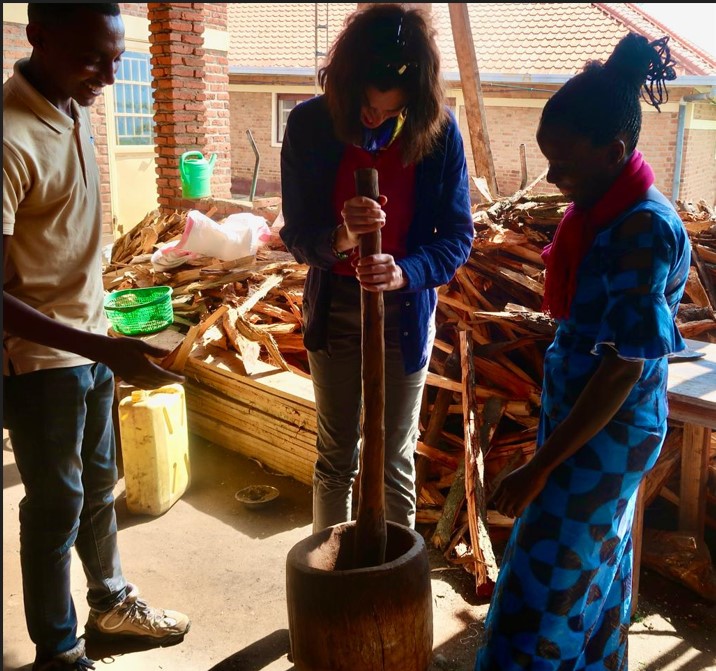
At Agritourism destinations, the visitor gets involved in the traditional way of doing things, such as pounding coffee beans.
More a journey than a destination
Agritourism is not about reaching a destination, but more about enjoying a specific route with different exciting stops and activities along the way. It may also include a farm stay. This allows local and international visitors to learn more about the area, its inhabitants, and their lifestyle.
“Local communities, businesses and farmers in an area can cooperate to create an interesting route that will attract tourists for the benefit of the whole area,” says Jacqui.
Participants create an additional income for everybody involved. This is one way of creating infrastructure and jobs, which will help keep people in rural areas. When a community work together to create something sustainable, it builds pride in their local traditions, which help preserve the landscape. “Africa is mainly an agricultural continent and agritourism can lead to food security.”
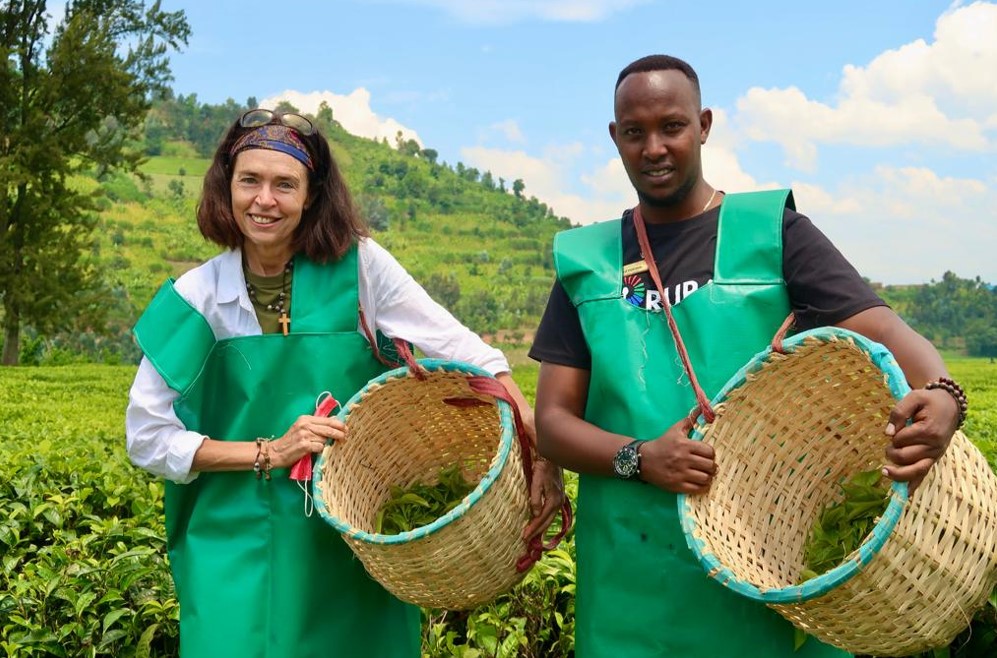
Jacqui visits a tee plantation in Rwanda
The ideal agritourism route includes elements that will entertain every member of the visiting family. Maybe Dad wants to go cycling, Mom wants to experience the preparation of traditional food, while the kids want to help feed the lambs, milk cows or watch sheep shearing.
“During the Covid-19 pandemic, families were isolated in their homes. Parents ever since are desperate to get out and find something interesting for the kids to do in spacious rural areas.”
Jacqui believes it is important that visitors return to a place where they enjoyed the experience. “It saves marketing costs,” she says.
A growing industry

Jacqui Taylor with an agritourism farmer (name unknown) in Rwanda.
Agritourism has grown immensely since 2016. At one stage, there were nearly 100 businesses listed in her books, but she decided to cut them down to about half the number.
“I want people from all walks of life to be involved and all communities must benefit from agritourism: it is not reserved for rich landowners!”
Some of the popularity of agritourism can be attributed to Jacqui’s enthusiasm. “It is not an easy task, but it becomes easier when one is passionate.”
She works with agricultural institutions and addresses conferences, especially to dispel the misconception that agritourism only involves a farm stay. “I want people to see the bigger picture!”
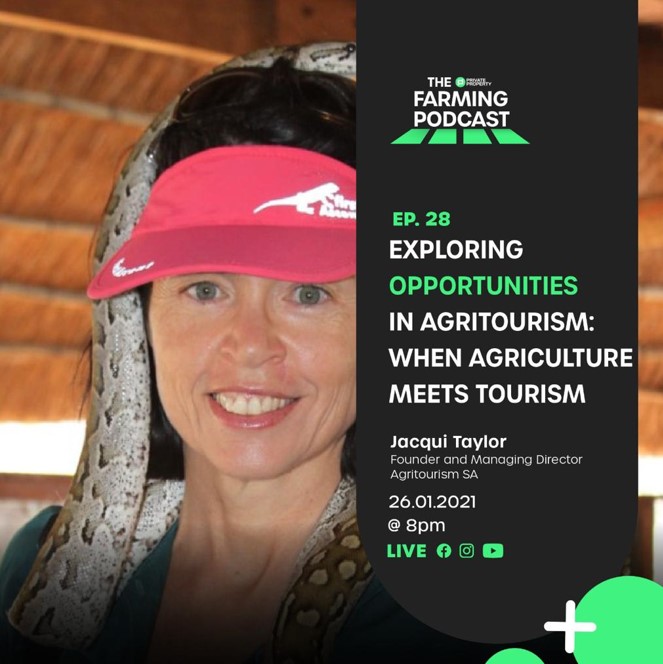
Jacqui Taylor’s enthusiasm helps her to get a difficult job done.
With her talks and blogs, she conveys the message that agritourism is about rural development, empowerment of women, and food security. “Women raise children in rural communities and are often desperate to earn additional income, either to buy food, pay school fees or even save for a college fund. Job creation also assists in combating crime.”
She believes it shouldn’t be expensive to start an agritourism initiative. “I would like farmers and local communities to cooperate in creating a route. They must take hands with business people, tourism offices and the government. Through cooperation, they can create a sustainable network of participants.”
Routes and projects
Jacqui acts as a consultant to help communities in South Africa and other African countries, including neighbouring countries, launch projects.
The Elgin Agritourism Route at Grabouw is an excellent example of a route providing something for the whole family. The area is known for its beautiful landscape, fruit orchards, vineyards and even conservation areas, such as the Kogelberg Biosphere Reserve, with its extensive variety of fynbos plants, which enjoy recognition as a Unesco heritage site, but also the mountainous Hottentots-Holland Nature Reserve.
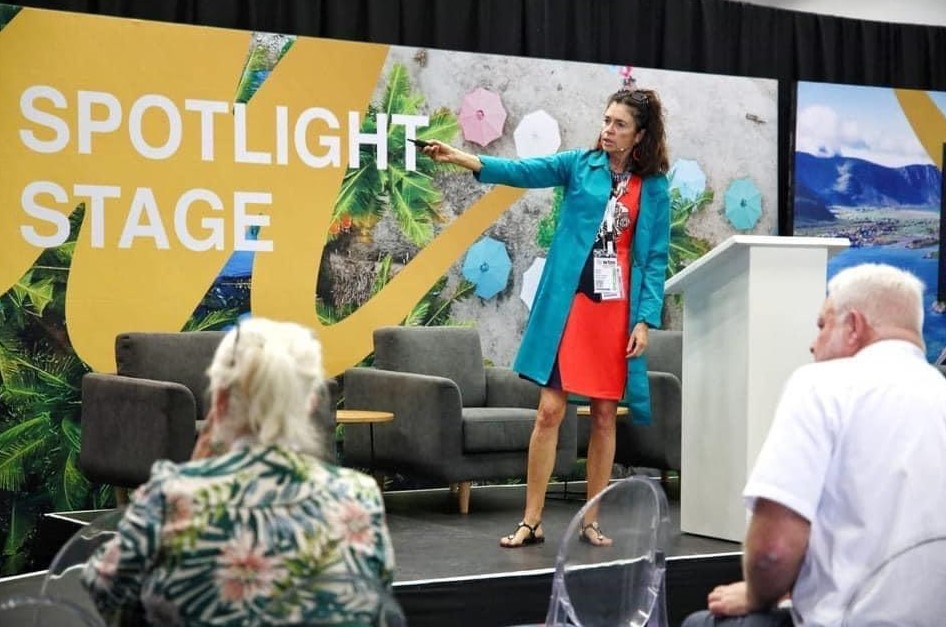
Jacqui explains the agritourism concept at the World Travel Market in Cape Town.
The area offers visits to vineyards, restaurants, and different accommodation options, as well as a variety of sports activities, including cycling and hiking, picnic spots and play areas for energetic children.
She also favours projects that involve international volunteers, such as the Kwanda Project which includes local communities in the vicinity of East London in the Eastern Cape Province.
The volunteers work with the community members, and they learn from each other, thus empowering the local community. “I believe the volunteers go home with a renewed appreciation of the daily lives of the communities and a vision to make a difference.”
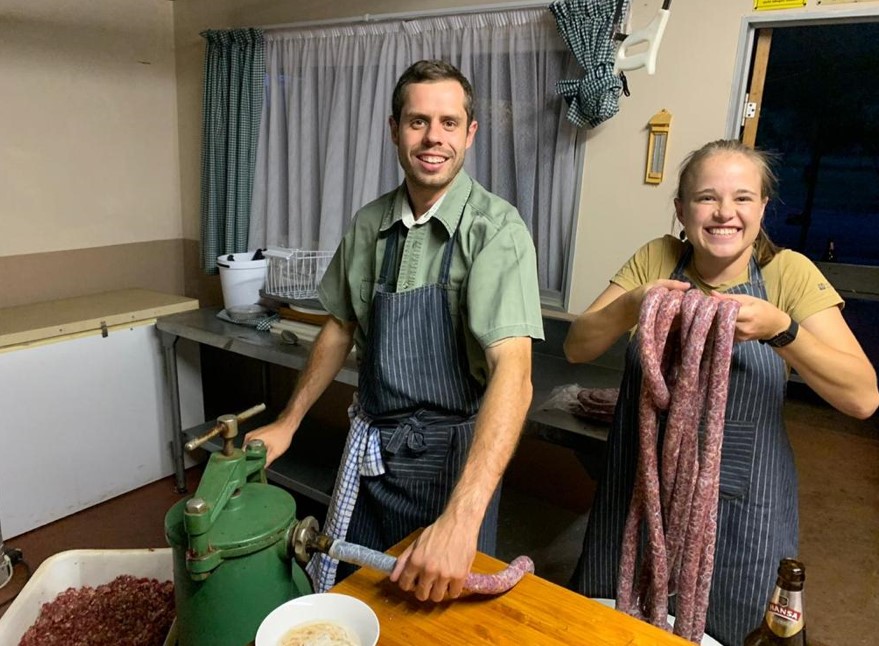
Thomas Scholfeld and his wife Heidi of Flintbeck Farm near Magaliesberg make traditional farm sausages.
Peter-Hain Kazapua started Ukaii Wilderness Safaris in the Omaheke area near Gobabis in Namibia in 2004. This project offers a unique cultural experience through community-based tours.
Taku Nutepfa created the Lanuyla Sustainable Village near Lubabwe, a town close to the Victoria Waterfalls and the Hwange Nature Reserve in Zimbabwe. The poverty of the community amid the most important tourist attractions in the area inspired Taku to create an income for her own people. Besides routes along which visitors can reconnaissance the area and experience the lifestyle of the communites, they can also participate in a number of nature-inspired activities.
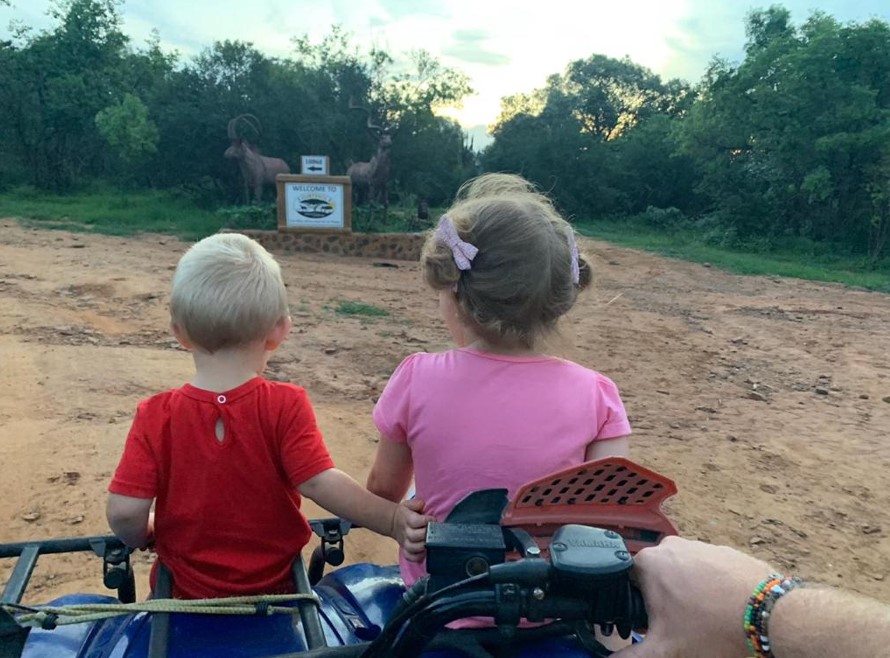
Parents love visiting rural areas, such as Flintbeck Farm, where their children can experience nature.
Training
Besides Jacqui’s interesting blogs, which introduce and market the different routes and projects, she also presents courses in planning and marketing of agritourism routes, the development of projects to comply with international standards and safety regulations, information on how to package tours, agritourism marketing and communications as well as how much to spend on marketing at various stages of project development.

Farmers are the superheroes of agritourism and can initiate the development of a route.
How to become involved in agritourism
Register on the website at https://www.agritourismafrica.com/ , which also provides information on the process, costs, accreditation, and the advantages of becoming involved.
Contact details

Jacqui Taylor started Rural Agri Tourism in 2016 and presently has clients all over South Africa and the rest of the continent.
Contact Jacqui Taylor at 072 356 3212 or send an email to









